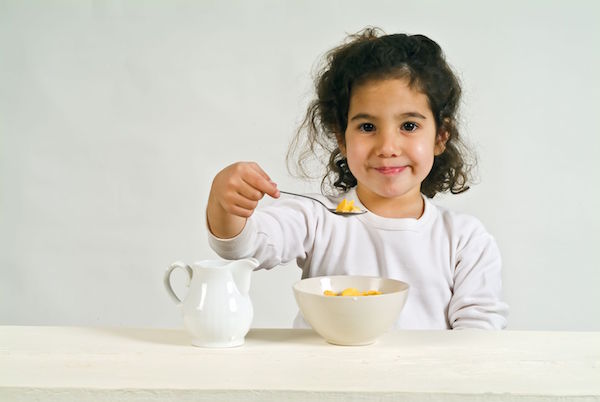
MONDAY, Oct. 31 (HealthDay News) — A new report claims that the makers of sugar-laden drinks such as sodas, sports drinks, energy drinks and fruit drinks take direct aim at children, particularly black and Hispanic kids, in their marketing campaigns.
Despite promises to improve their marketing practices, these companies still use tactics such as rewards for buying sugary drinks, community events, cause-related marketing, promotions and product placement in social media, according to researchers at the Yale Rudd Center for Food Policy and Obesity at Yale University. The findings were slated to be presented Monday at the American Public Health Association’s annual meeting in Washington, D.C.
“We found that children’s exposure to TV ads for full-calorie soda doubled from 2008 to 2010,” Jennifer Harris, report author and director of marketing initiatives at the Rudd Center, said during a morning news conference. “We also found that energy drinks are heavily marketed to children and teens.”
Companies are reaching children not only by direct advertising, but through product placement on prime-time TV, the Internet and Facebook, Harris said.
Not only do beverage makers target children, but they also make health claims even though their products contain sugar, artificial sweeteners and caffeine, added Marlene Schwartz, deputy director of the Rudd Center. Many parents think sweetened sports drinks and fruit drinks are good for their children, she noted, and “they also believe the nutrient claims about vitamin C and real and natural ingredients, and interpret those as meaning that these products are healthful options.”
“One of the things we were surprised to learn is that some of these products marketed to children contain both artificial sweeteners and sugar,” she added.
To reach these conclusions, the authors looked at the marketing strategies of 14 companies and almost 600 products.
Highlights of the report include:
- Lots of fruit drinks and energy drinks contain as much sugar and calories as full-calorie sodas.
- Forty percent of kids’ fruit drinks contain artificial sweeteners.
- More than half of sugary drinks and energy drinks make nutrient-related claims on their packages. Sixty-four percent say they contain “all-natural” or “real” ingredients.
- Energy drinks are not appropriate for children and teens, but they are heavily marketed to them. In 2010, teens were exposed to 18 percent more TV ads and 46 percent more radio ads for energy drinks than adults. In 2010, teens saw 20 percent more TV ads for energy drinks than they did in 2008.
- Although the industry promised not to market unhealthy drinks to children, exposure to full-calorie soda TV ads doubled from 2008 to 2010.
- Companies target black and Hispanic children and teens. Black children and teens saw up to 90 percent more ads compared with whites. Between 2008 and 2010, Hispanic kids watching Spanish-language TV saw 49 percent more ads for sugary drinks and energy drinks, and Hispanic teens saw 99 percent more ads.
Reacting to the report, Susan K. Neely, president and CEO of the American Beverage Association, said in a statement that “the people at our member companies — many of whom are parents themselves — are delivering on their commitment to advertise only water, juice and milk on programming for children under 12.”
“In fact, recent research supports that there has been a dramatic change in food and beverage advertising during children’s programming, with advertisements for soft drinks decreasing by 96 percent between 2004 and 2010 alone,” she said. “This report is another attack by known critics in an ongoing attempt to single out one product as the cause of obesity when both common sense and widely accepted science have shown that the reality is far more complicated.”
Samantha Heller, clinical nutrition coordinator at the Center for Cancer Care at Griffin Hospital in Derby, Conn., said that “the Rudd Center study quantifies what most of us already know: that kids are drinking too much sugar. Still, the results are unsettling and disturbing.”
Parents need to be educated that sodas, energy drinks and fruit drinks are not healthy for children or teens, Heller said. “They are not healthy for anyone, actually,” she added. “The food companies need to devote some resources to not only changing their marketing practices but also to reformulating at least some of their products to make them healthier.”
In the meantime, parents need to stop bringing sugar-sweetened beverages into the home, Heller said. “There is no need to give a toddler soda or fruit drinks. They will be perfectly happy with water or low-fat milk or soy milk if that is what they are used to,” she said. “And while your teens may complain that there are no more sodas or fruit drinks in the house, they will get used to it.”
Because these findings were presented at a medical meeting, the data and conclusions should be viewed as preliminary until published in a peer-reviewed journal.
More information
For more information on healthy drinks for kids, visit the Nemours Foundation.

